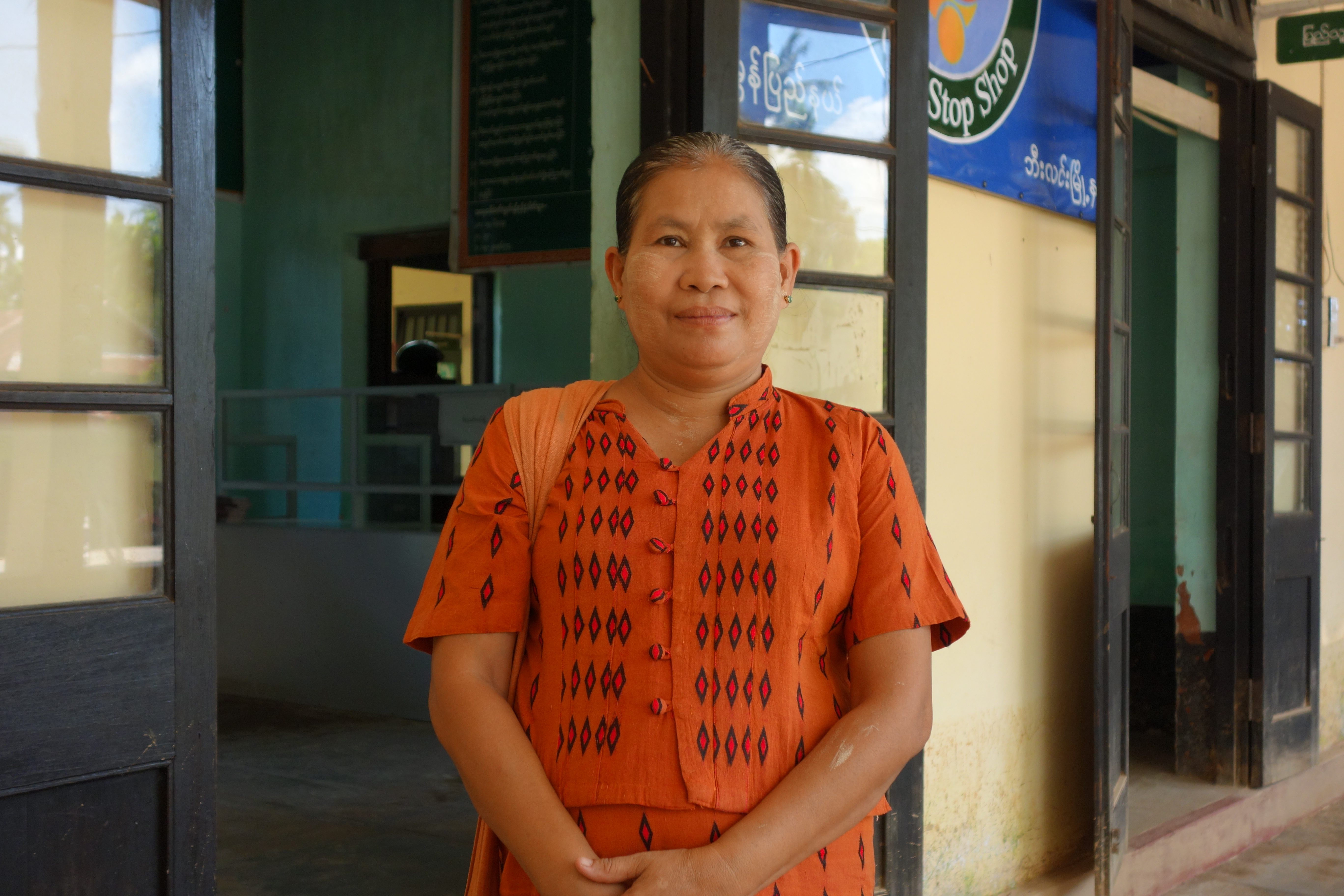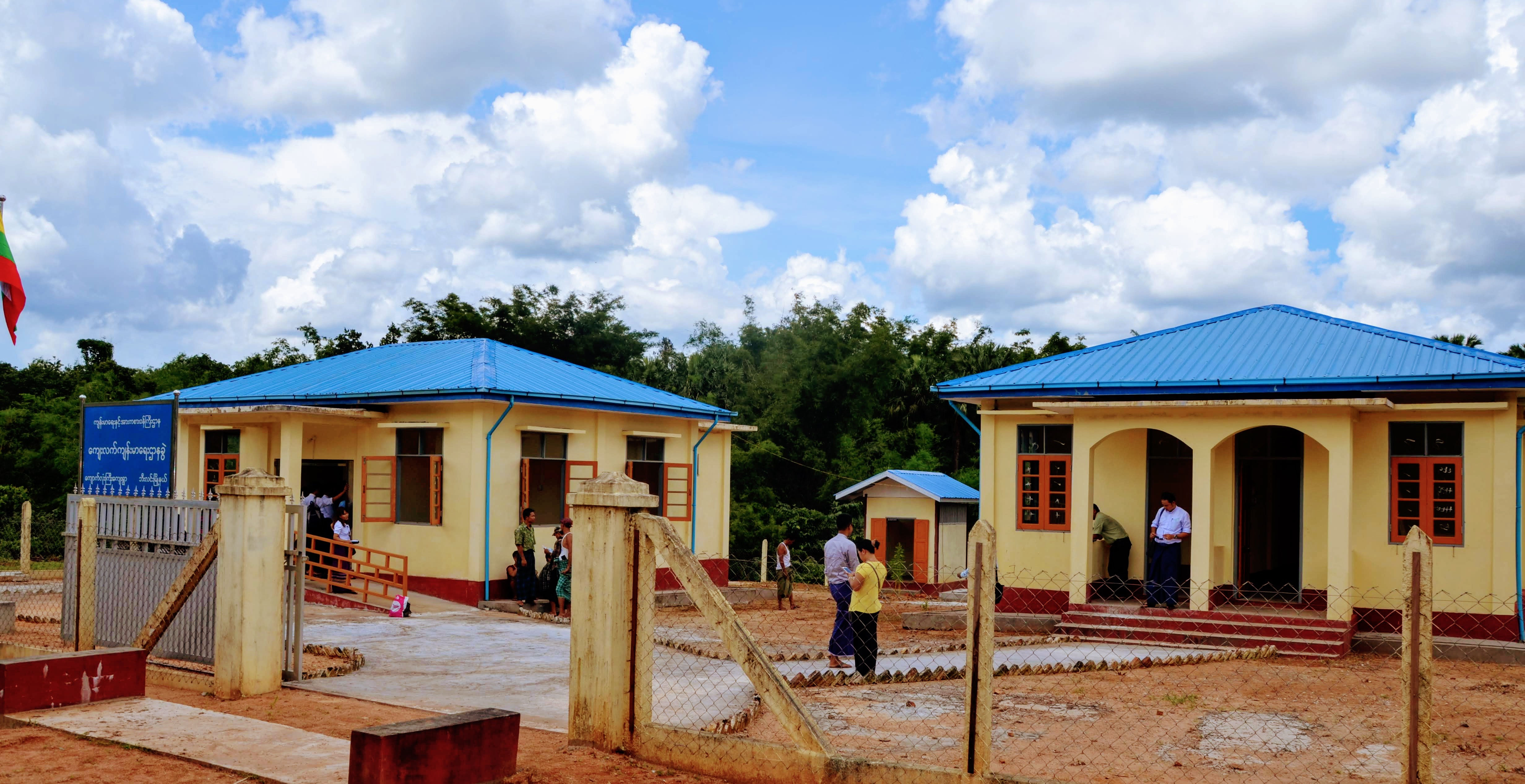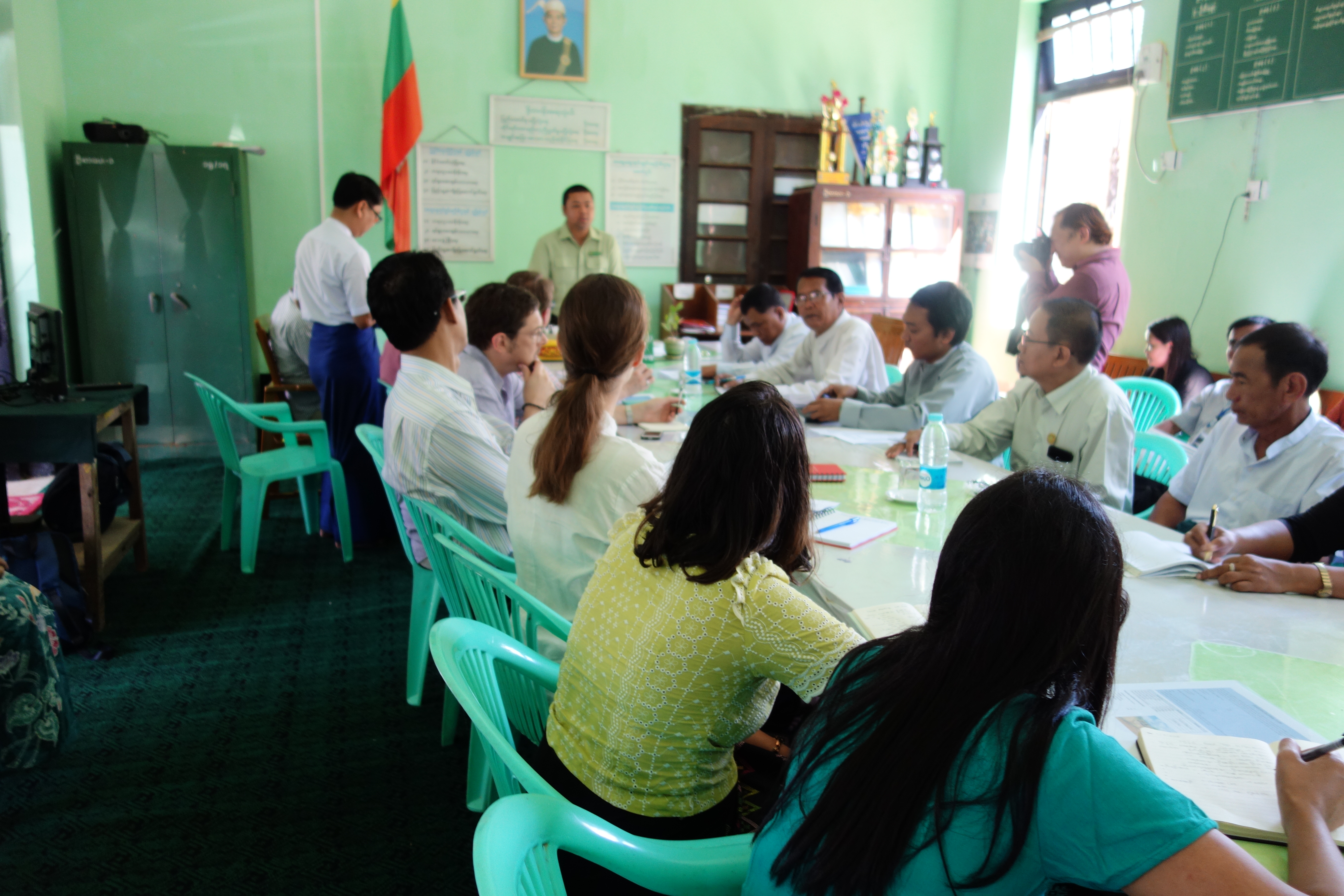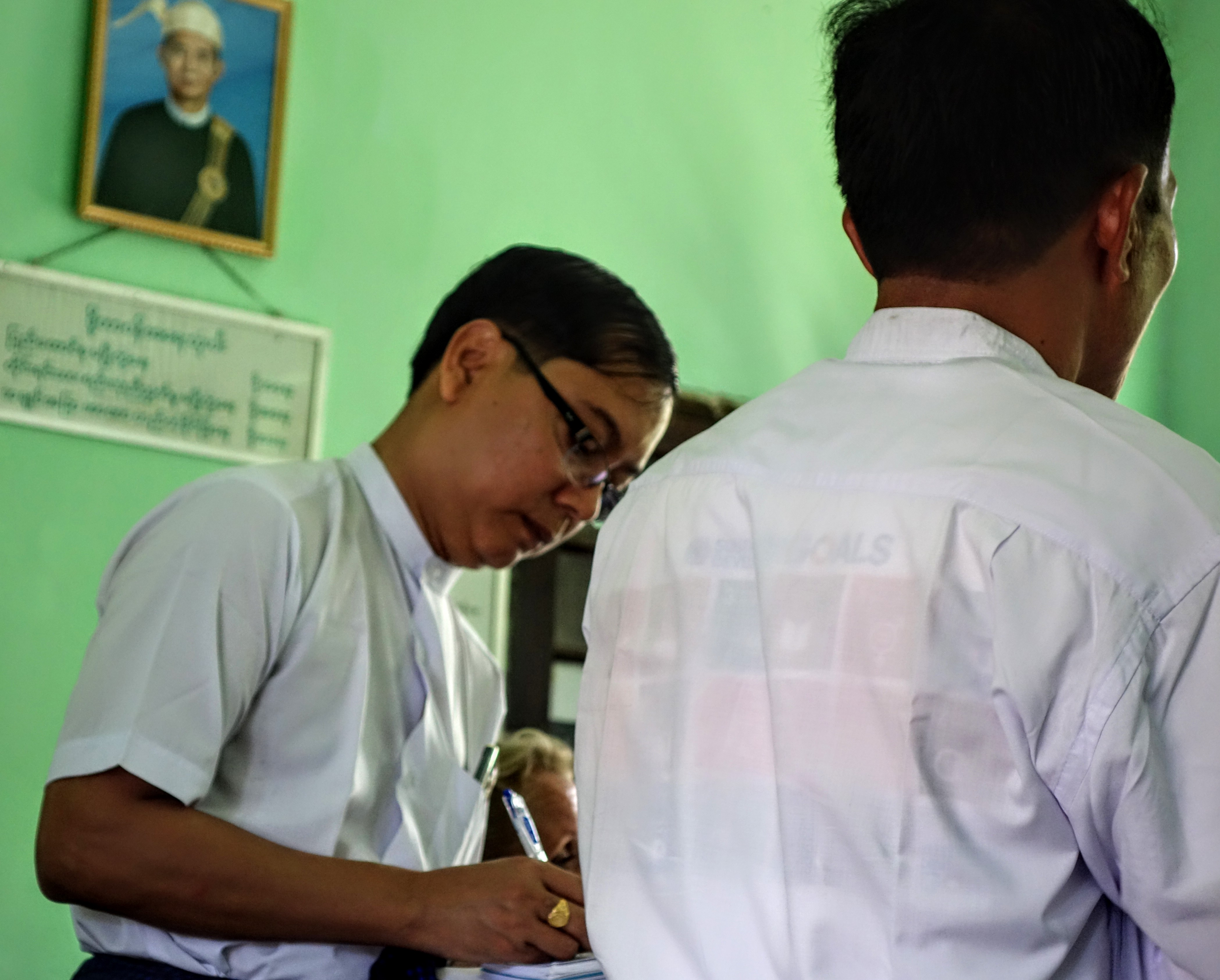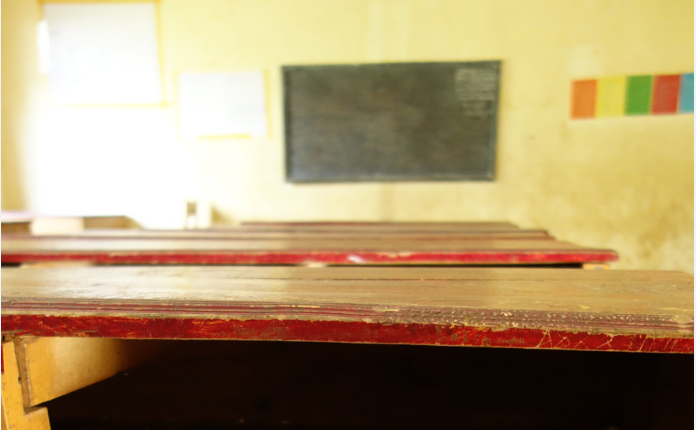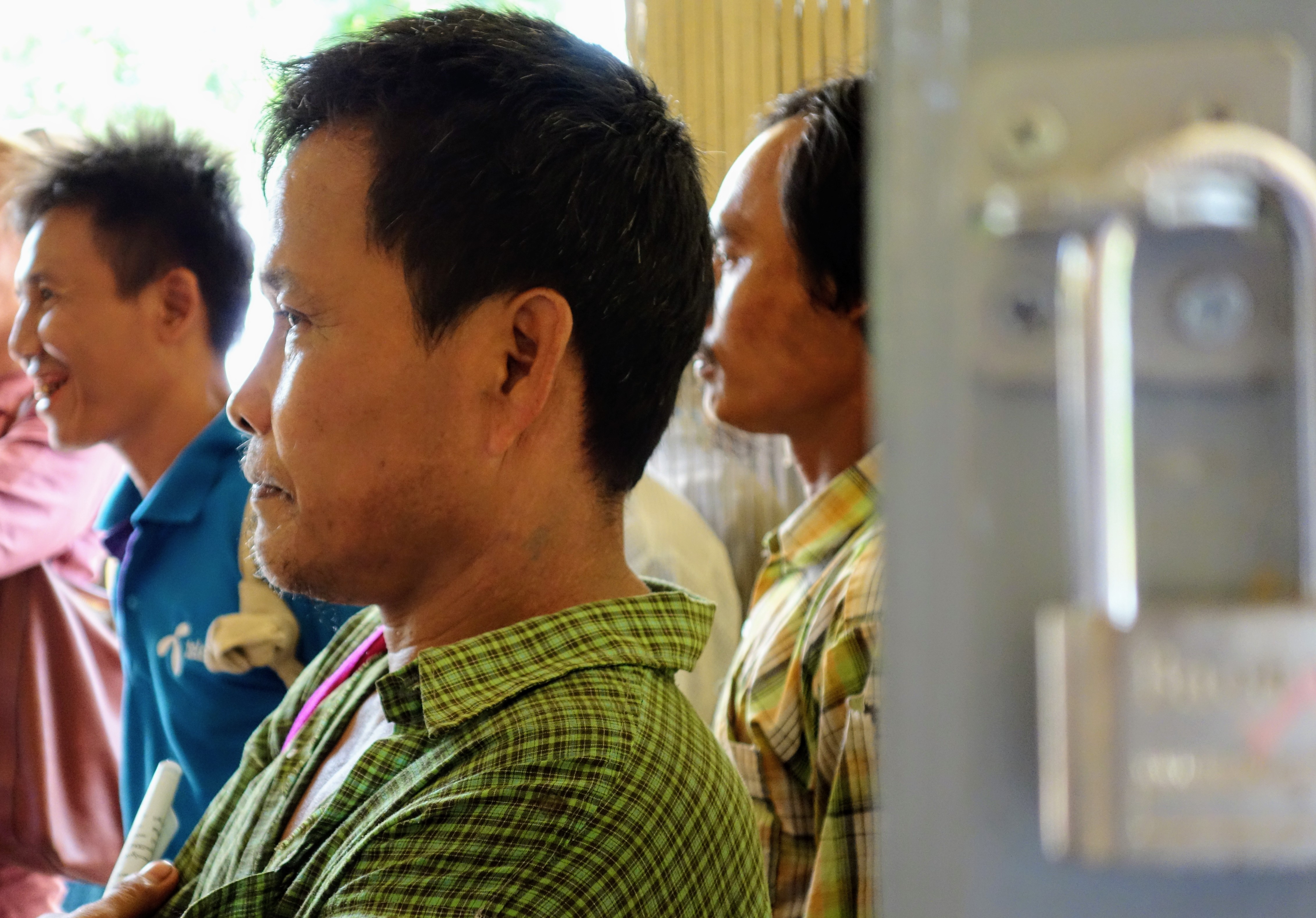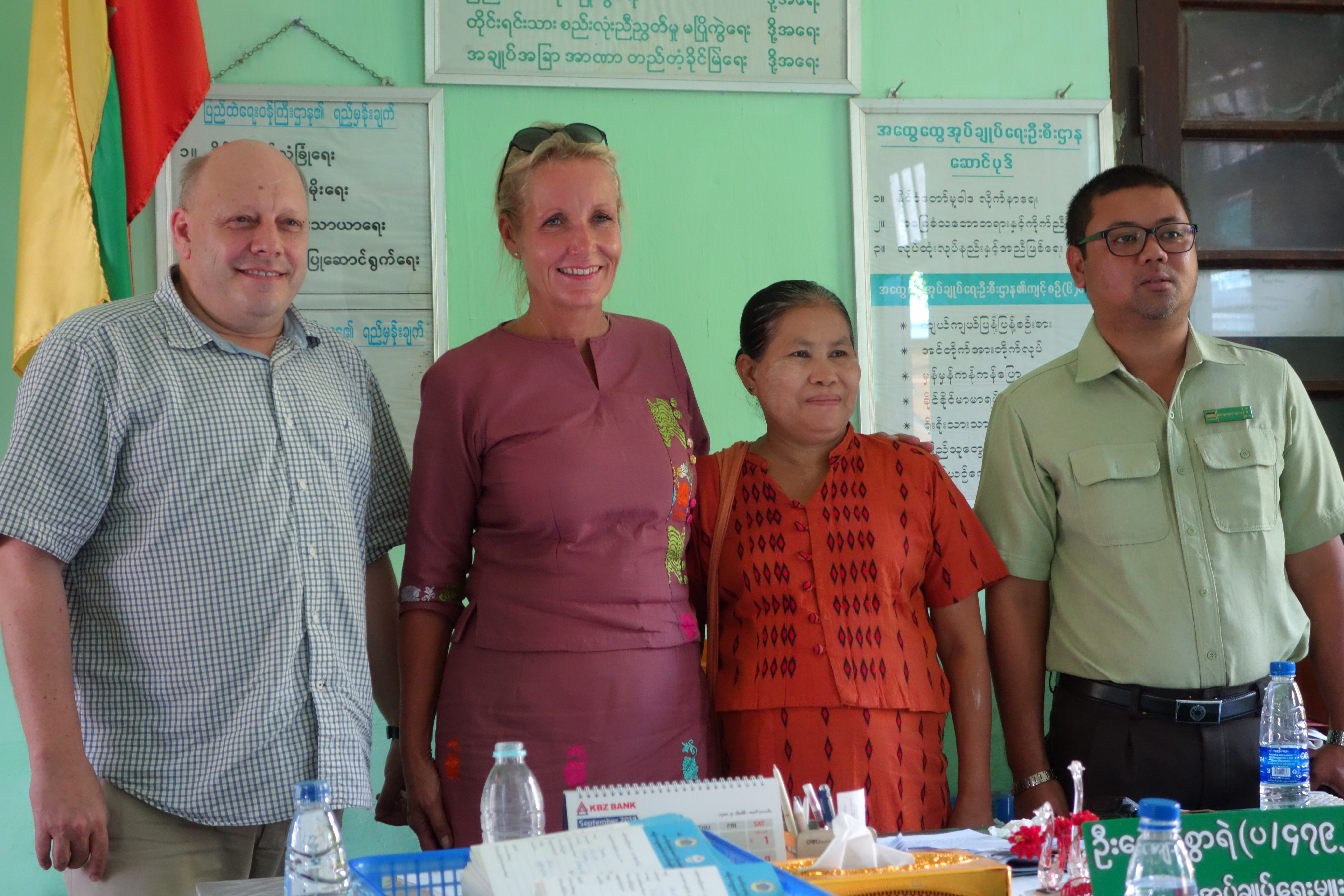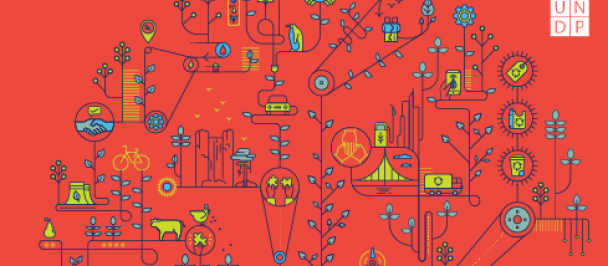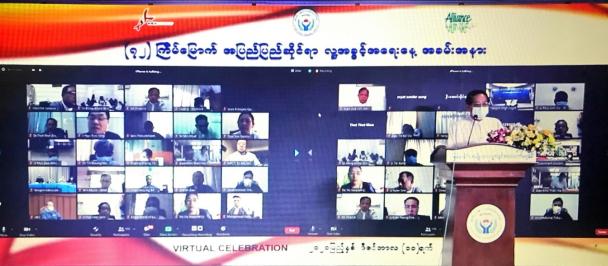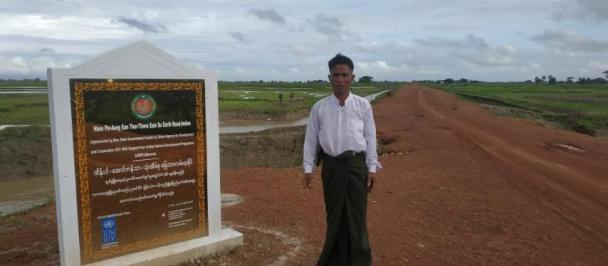Village Tract Administrator Daw Cho Cho Myint from Thae Phyu Chaung in Bilin , one of the very few female Village Tract Administrators in Myanmar. In Mon state there are a total of nine. Photo: UNDP
For the last year, by systematically involving and giving voice to people and elected representatives, access to water, sanitation, education and roads have improved in Bilin, bringing new prospects for sustainable development, peace and democracy.
Bilin, Mon State, October 2018: One year back she couldn’t have imagined where she stands today. One of the very few female village tract administrators in the country, merely one hundred out of 16,789 across Myanmar, Daw Cho Cho Myint shared the results and lessons learned in her community of applying the approach used in the Township Democratic Local Governance project in Bilin. With pride she went to describe what this has meant to her township and to herself: a new high school and a health center, for which she is very “grateful”. Most importantly for her was that the “needs of the people in her village have been transmitted to the township planning and implementation committee and agreed by all stakeholders as projects to be implemented and funded by a township development grant”.
With other community representatives, together with civil society, township officials, donors and UNDP technical team, she had gathered in Bilin to celebrate achievements and lessons learned of the first township participatory planning process in all Myanmar. In spite of all their differences, there is something they all agreed on: the renovated schools, the improved access to sanitation, the water supplies in schools and new health and transportation infrastructures demonstrate that, even if in a small scale, when communities are given a voice the quality of the delivery of public services by the government improves. Equally important, when people understand how decisions at different levels of government are made, trust between the government and the people increases.
New rural health center in the remote village of Kyauk Lon Gyi, an area of mixed administration by the Government and the Karen National Union. Photo: UNDP/ Sai Kyaw Naing Win
The Township Development Governance Project
The result is part of a pilot initiative by UNDP called the Township Development Local Governance project, supported and funded by the governments of Switzerland, Sweden and the United Kingdom. The approach consists of providing discretionary grants to assist townships to put in place a basic democratic model for township annual planning that contributes to a more responsive township administration that effectively and efficiently provides basic services to its people in an inclusive, accountable and transparent manner.
This UNDP project is signed off by the Ministry of Planning and Finance at Union level and then a Letter of Agreement outlining the responsibilities of each party is signed by UNDP and each state and region participating in the project. But it is the communities representatives, the ward and village tract administrators together, with Hluttaw members, and civil society representatives who decide what projects to prioritize.
By engaging in this planning exercise, civil society organizations, civil servants and local leaders acquire a new set of planning skills, from participatory planning methods and consultative processes, basic statistics and usage of data skills, transparent procurement processes and strategies to implement projects that also contribute to the achievement of the sustainable development goals in their communities.
U Kyaw Swar Ye, township administrator of Bilin, during the meeting to review progress, lessons learned and results of the TDLG pilot project in Bilin. Photo: UNDP
More than grants: learning by doing what democracy means in practice
U Kyaw Swar Ye, township administrator of Bilin, is unhesitant to describe the process. It is not just about the grant, but also about understanding how government and communities can work together at the local level and develop the skills and capacities that are needed to do so. “The people and officials from different departments in the township have gained a lot of experience from this project” he explains, adding that “we can fulfill the needs of the people, by overcoming together the many challenges we face in Bilin”.
Of challenges, there are many in Bilin. A township at the heart of Mon State, Bilin has two different regions, the hills and the plains, with very different development needs. A large proportion of the population lives in remote areas and during rainy season access to basic services is a feat of courage and community collaboration. Moreover, Karen is widely spoken in the area while public services are mostly delivered in Myanmar language.
To make public service delivery even more challenging, while a significant part is administered by the government, some parts of the territory, mostly in the hills, are partly administered by the Karen National Union (KNU), one of the ethnic armed organizations that signed the Nationwide Ceasefire Agreement. As part of the interim arrangement under the NCA agreement, Government of Myanmar and the EAOs have committed to coordinate delivery of public services but very few concrete examples of collaboration had happened to date.
Kyar Kwin village tract administrator, U Soe Thein explains that even if his village tract wasn’t chose for funding, the participatory planning was a learning exercise that allow to better understand planning processes and SDGs. Photo: UNDP
Multisectoral grants, multidimensional results
Based on the understanding that needs differ from township to township, the grants are multisectoral, meaning that can be used by any department, from health, education, rural development to road construction. What it is important is that the grants are designed to respond to local development priorities identified through a participatory township planning process and are utilized through using the institutions functioning in the township.
They key of the success of this approach lays on the concept of public participation and government engagement. To that end the project has convened township sectoral departments, community representatives, Hluttaw members, Mon state government officials, and representatives from Civil Society organizations in an inclusive township planning process; developed project specifications and managed public procurement processes; monitored and oversaw the implementation of the work works.
The community of Awun Gyi village decided that for improving the learning conditions in Awun Gyi Middle school, a small grant should support improving its roofing and safety infrastructures. Photo: UNDP
After consultation processes, led by the ward and village tract administrators and with input from civil society organizations and Hluttaw members, communities agreed in investing the 207,000 USD grant, which equals to an allocation of approximately one dollar per person living in Bilin township, in several construction works: new toilets for local public schools in 26 villages, bringing access to sanitation for 3,876 students; twelve primary schools have been renovated, improving the conditions in which 1,600 children learn; clean water supplies for thirteen schools; a road connecting several villages and one rural health center that now allows access to primary health care of remote communities. Two of the largest projects were selected in mixed controlled areas.
Looking forward: scaling up and consolidating peace
U Thar Thar, KNU Secretary for six village tracts in Billin, during the opening of a new health center in Kyauk Lone Gyi. Photo: UNDP
The township administrator, U Kyaw Swar Ye explains how the different departments that constitute the Township Planning and Implementation Committee (TPIC), after the priorities were made in the participatory planning process, engaged in many conversations with the KNU and jointly agreed how the project should be implemented and what could benefit their communities the most. “Through cooperation and good relationships we have successfully finished the projects and overcome all obstacles along the process”.
For example, as a result of the participatory planning process a new road connecting A Sue Chaung with Paw Khee has been built with TDLG funds. In-depth communication between the township responsible sectoral department and the KNU administration, for the mutual benefit of both communities, have led to the successful culmination of this infrastructure work. This has reduced transportation times by half and has also improved trade in the township. What it is even more meaningful, describes Daw Mon Mon Then, UNDP Senior technical specialist in the area, “is that the village tract administrators of other parts of Bilin fully agreed during the planning process to allocate the resources to villages controlled by the KNU”. U Thar Thar, KNU secretary in the North of Mon state confirms that indeed the Karen community was listened to and participated in the process.
Peter Bachelor, UNDP Country Director, Anki Dellnas, UNDP Local Governance Chief Technical Advisor, Daw Cho Cho Myint village tract administrator in Thae Phyu Chaung tract and U Kyaw Swar Ye, township administrator Bilin. Photo: UNDP
The unprecedented experience of Bilin, together with a similar pilot in Kawa, Bago, marks the first-ever pilot to test out a model for participatory township planning, fiscal decentralization and usage of a needs-based formula allocation for local service delivery in Myanmar. The approach is now reaching a total of 20 townships in Bago, Mon and Rakhine and have been incorporated into governments annual township planning processes. While UNDP together with development partners and government are looking how to scale and expand the approach across Myanmar, Daw Cho Cho Myin and other village tract administrators have already started to consult their communities and discuss what priorities should be put forward for the next planning cycle. “The needs are many and even though we have increased our skills in using statistics and data it is still not easy to prioritize”, describes U Myint Oo, Assistant Director from the planning department and secretary of the TPIC, “but a participatory planning process help us to select what to fund and support the transition into democracy of our country by listening to the people of Bilin”.

 Locations
Locations